Despite how much one loves their friends or family, sacrificing certain things in life—getting an education or starting afamily, for instance—in order to care for them might not be something they’re willing to do.
This redditorwasn’t willing to give up his future so he can be a carer of his two siblings with disabilities. Unfortunately, his parents couldn’t see his point of view, as they’ve always viewed him mainly as someone who’ll care for their other two children in the future.
Family members often become the carers of people with disabilities
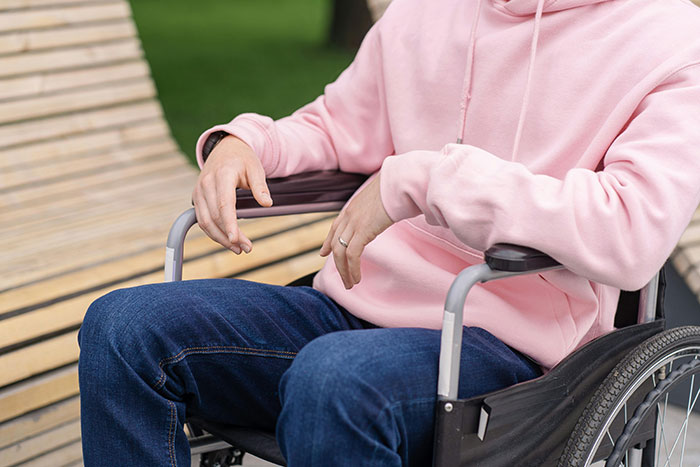
Image credits:SHVETS production / Pexels (not the actual photo)
This young adult refused to be the carer of his two disabled siblings
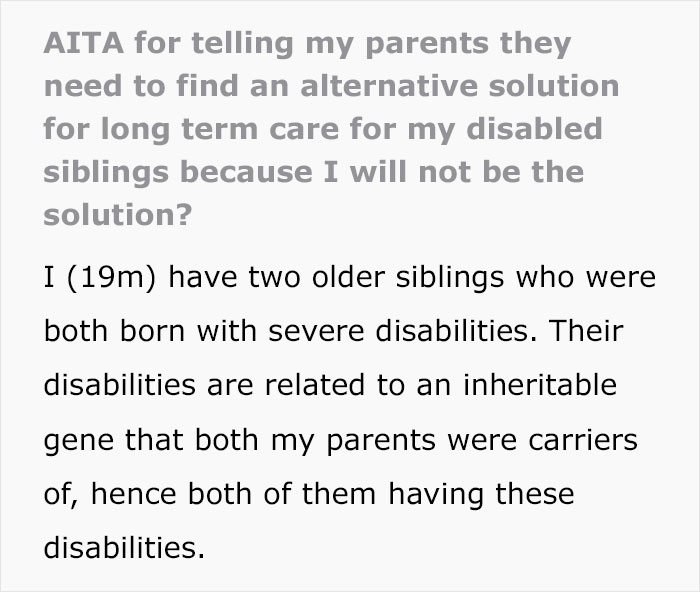
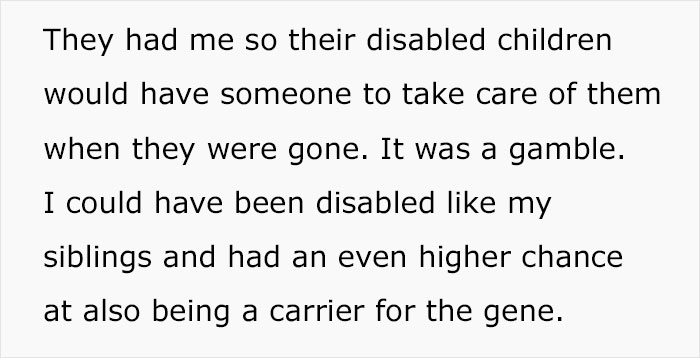
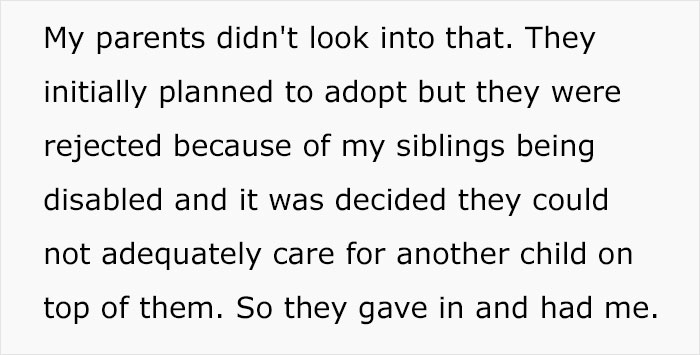
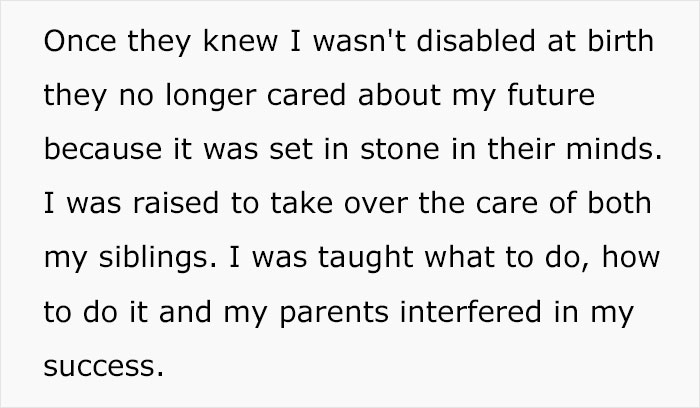
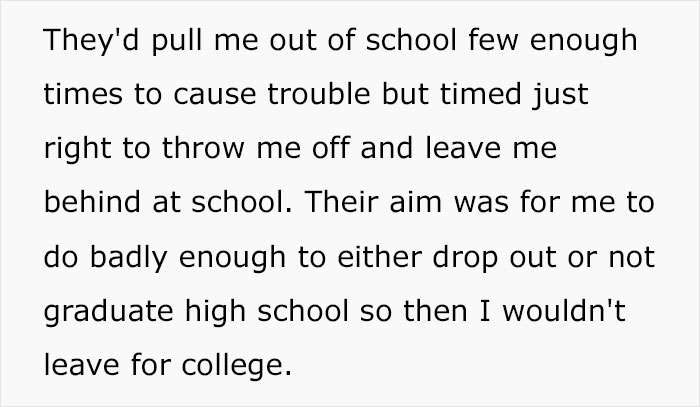
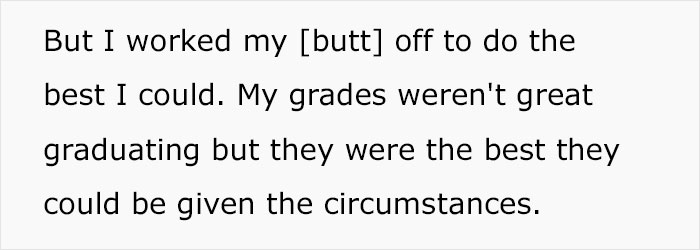
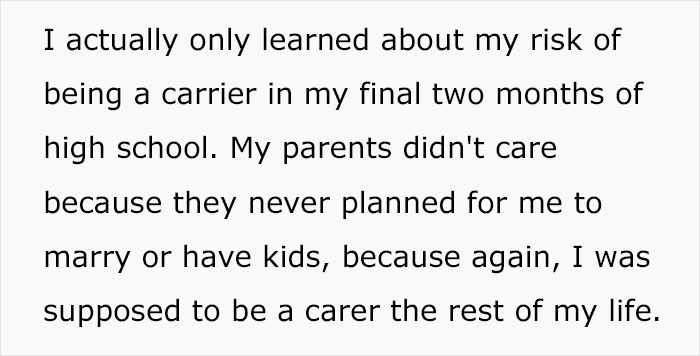
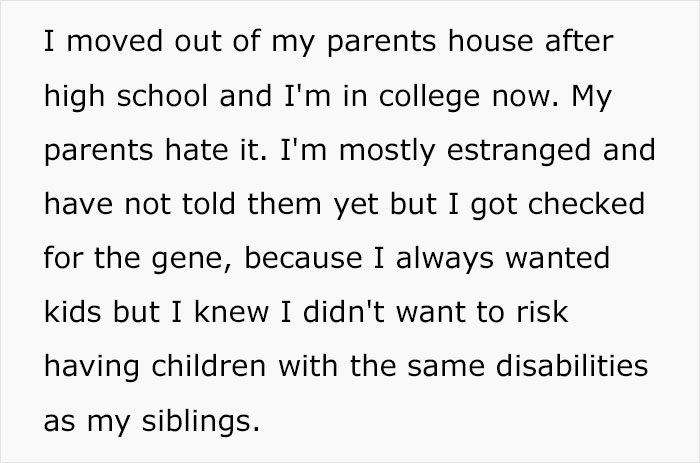
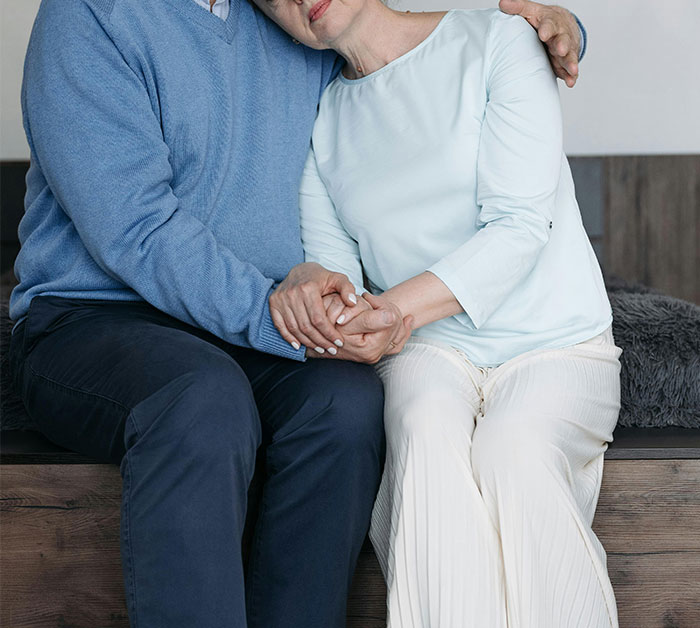
Image credits:Pavel Danilyuk / Pexels (not the actual photo)
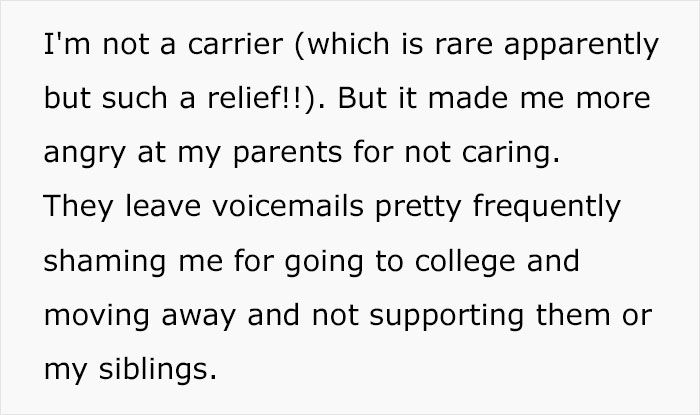
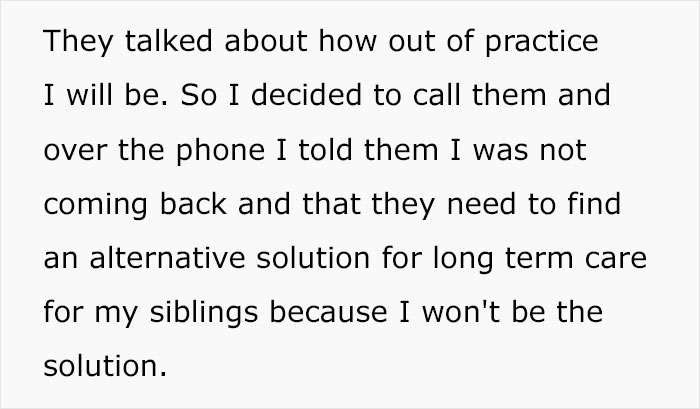
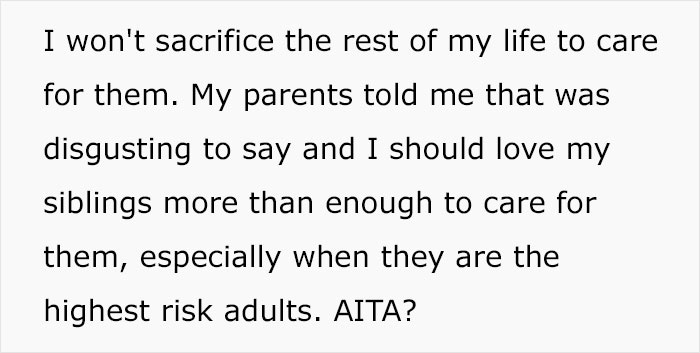
Image credits:GateInteresting8910
Nowadays, there are tens of millions of people providing care for those in need of assistance

Image credits:Marcus Aurelius / Pexels (not the actual photo)
Be it a family member, a friend, or other person they provide assistance for, millions of people nowadays are carers to someone witha disability. Divided between informal caregivers (individuals who are unpaid; for example, a spouse, a friend, or a family member) and formal caregivers (those who get paid for providing care), together they comprised roughly 43.5 million caregivers back in 2015,Family Caregiver Alliancereports.
Caregiving can be draining both physically and mentally

Image credits:Vlad Bagacian / Pexels (not the actual photo)
Spending 30 hours a week providing care for someone leaves a person nearly as busy as one with a full-time job. While some peopleare willingand able to sacrifice certain opportunities in their careers or personal lives, others simply aren’t; often because caring for another human being is not only time-consuming, but both physically and emotionally challenging, too.
A studyon family health, functioning, and care burden in families with special needs children found that parents who take care of their disabled children tend to be drained physically and don’t have the energy to do the things they liked to do, nor do they have enough time for chores. Mentally they are reportedly frustrated, anxious, and angry; they feel helpless and hopeless, and worried about numerous things from medications and treatments to the effect the child’s condition might have on other family members.
In the OP’s case, theparentswere focused more on the effect—or lack thereof—the child with no disability might have on his disabled siblings. The redditor wasn’t willing to skip college or the chance of starting his own family because his parents relied on him to take care of his siblings; that’s why he suggested that they find an alternative solution for long-term care. And the online community seemingly supported his decision, as they pointed out that said siblings were not his responsibility and that he was his own human, not just a part of some plan.
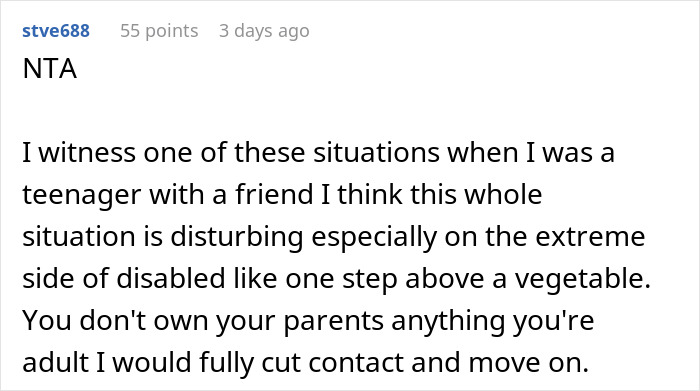
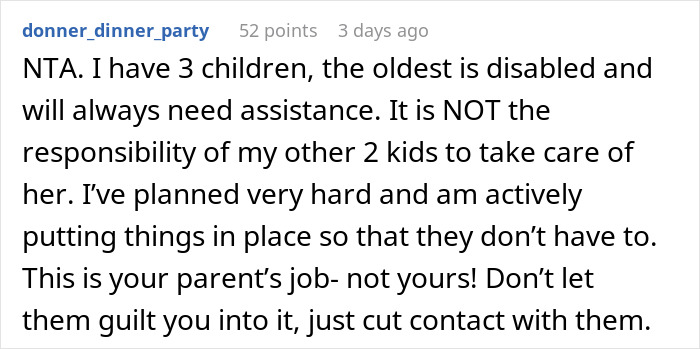
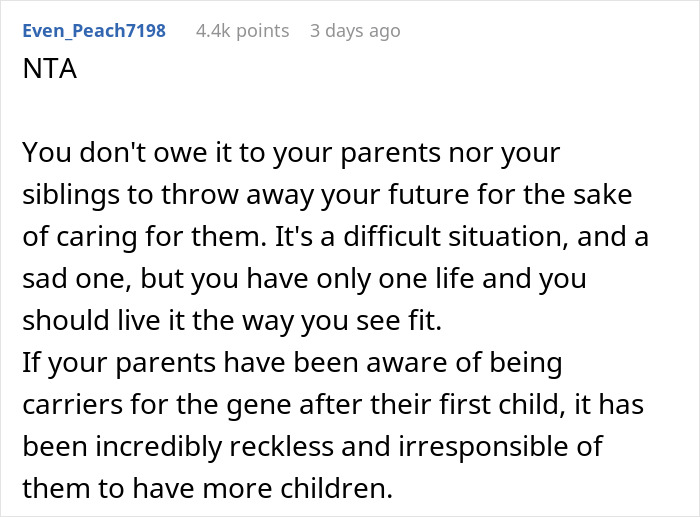

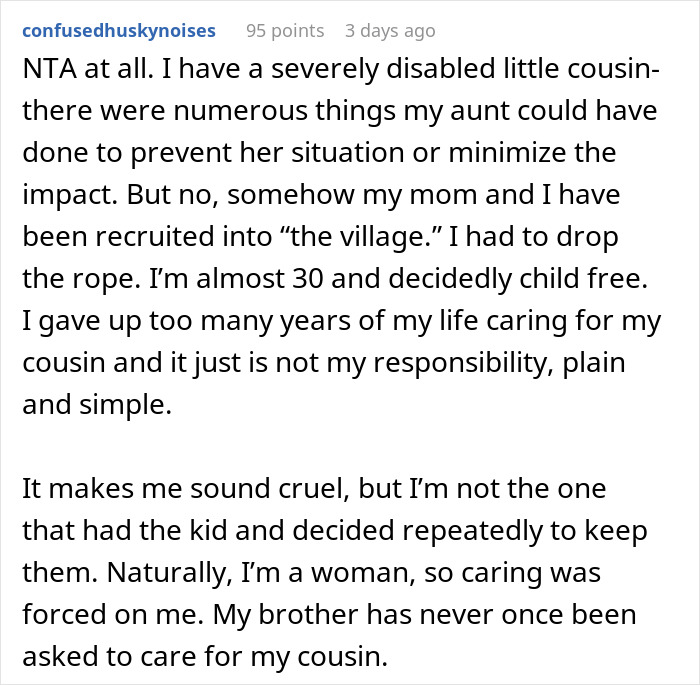
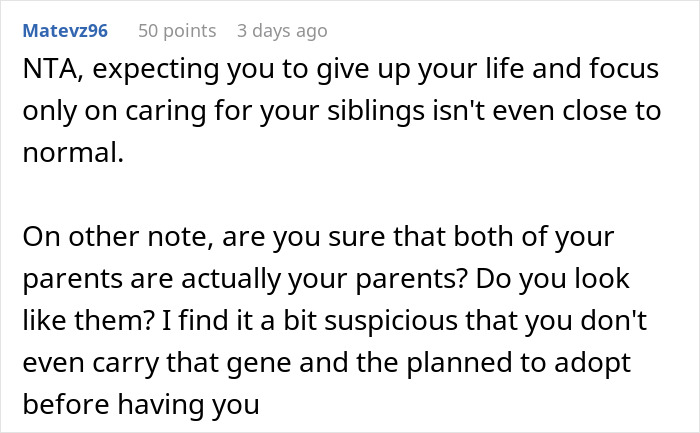
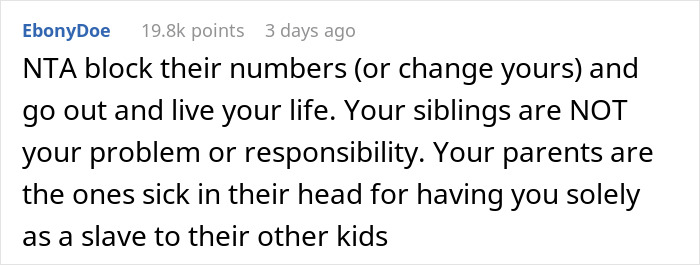
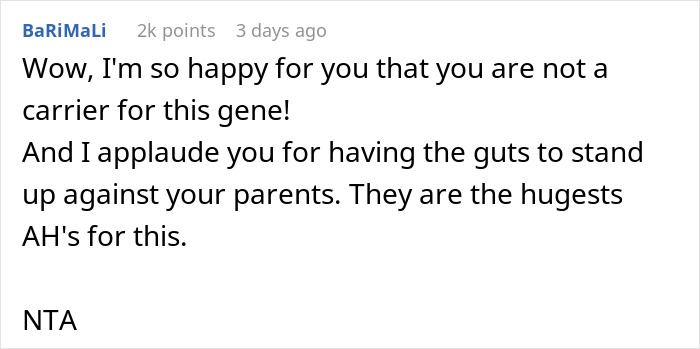



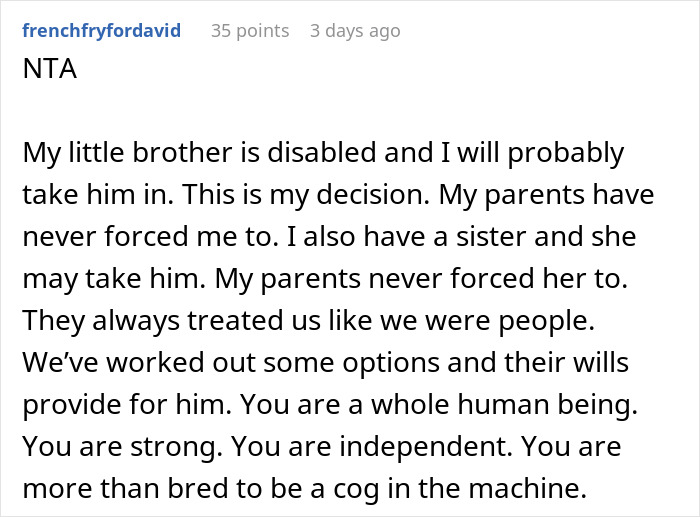
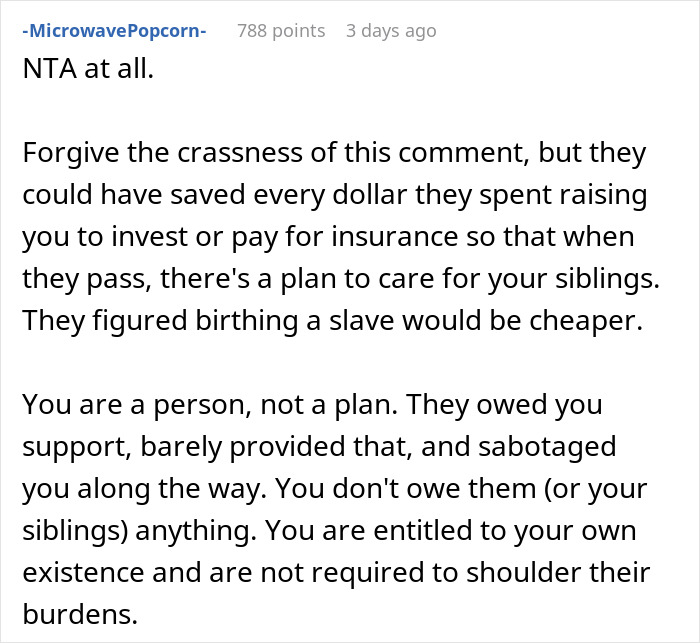
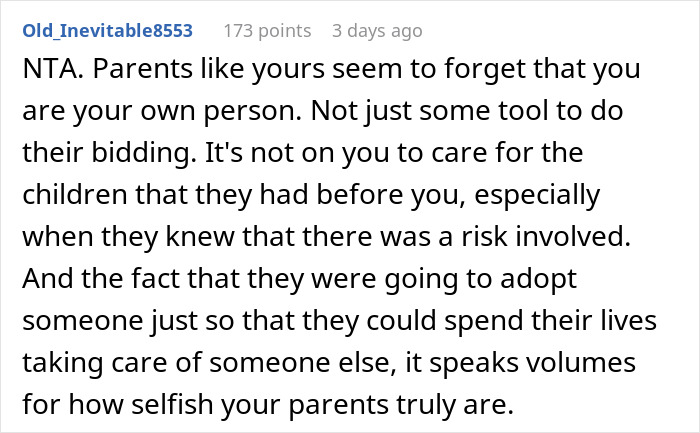
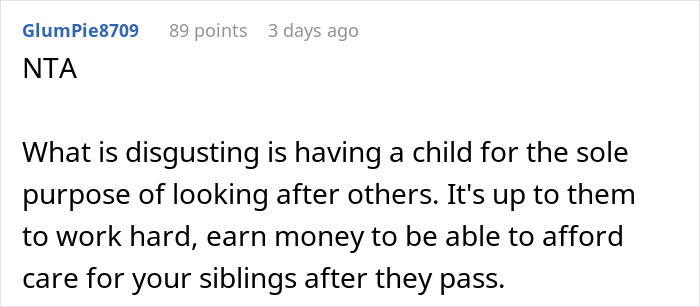

Thanks! Check out the results:Monika Pašukonytė
Mindaugas Balčiauskas
Gabija Saveiskyte
Relationships